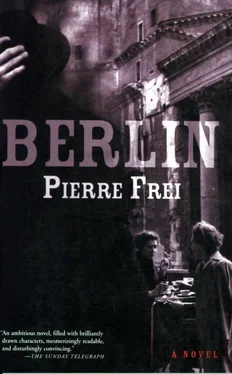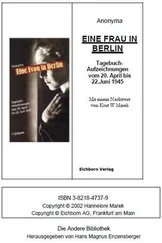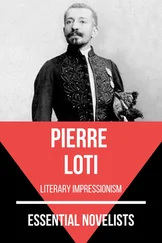'OK.' Obeying an instinct, Helga carefully took her new employer's glass away from her. 'You don't need that any more, Myra. You have me now.' She took her hand. The American stiffened. A few seconds later she was just a child, seeking shelter in Helga's arms.
Colonel Harold Miles Tucker was a career soldier. He had commanded a battalion in the Airborne Division and fought his way from Normandy to the Elbe with his paratroopers. Service in Berlin was his first peacetime post. He had been assigned to the US city commandant as his adjutant, and it was on the commandant's instructions that he had sent for Myra and the twins. General Abbot expected his subordinates to set an example of family life, particularly to the Germans. It was all part of the 'democratic reeducation' of the conquered ordained by the State Department. Since the ban on fraternization had been lifted, contact with them was considered desirable. Helga learned this from Klatt, who admired the crew-cut Tucker, old warhorse and confirmed skirt-chaser.
She and Rosie had prepared platters of cold meats, salads, dishes of fruit and desserts — unknown delights, almost all out of cans. How astonished Karl would be, she thought, and felt a pang of melancholy.
The first guests arrived around eight. Tucker and his wife welcomed them at the front door: strong, healthy army and air force officers. Their wives were conventionally pretty, uttering crows of delight when they saw a girlfriend from the past — that was to say, someone last seen in the hairdresser's that afternoon. US civilian staff in their mock uniforms, a source of amusement to the military, loudly demanded whisky. A few hand-picked Germans were invited.
The city commandant, General Henry C. Abbot, a lean, grey-headed man with a weather-beaten face, came in a plain dark suit. Mrs Abbot was a silver-haired, grandmotherly woman. She asked after the Tucker twins, who were already in bed. The general was a Westpoint-trained army man from an old Boston family. He was an enthusiastic yachtsman, and engaged the mayor of Zehlendorf in conversation about sailing on the Wannsee. He and a couple of British officers had started the sport there again. Dr Struwe listened politely. He had other things on his mind.
Helga was serving at the buffet. 'I'll have some ham and egg salad,' someone asked. Mr Chalford's round, rosy face beamed at her. 'I see you've already settled in here nicely, Frau Lohmann.'
'Yes, sir, and thank you very much for finding me this position.'
'That's my job, Frau Lohmann.' Chalford walked across the room, balancing his plate. He'd seen someone he knew.
Her glance fell on one of the guests, and lingered there. 'Eugen!' she cried in surprise. He didn't hear her. Only when she repeated his name right behind him did he turn.
'Helga, how nice!' he said, arousing an alarming variety of feelings in her.
Professor Eugen Klemm had lost weight. His collar and suit were too big for him now, and his face had the drawn, grey look of thousands of hungry Berliners. 'Have you had anything to eat yet?' It was the first thing that occurred to her.
He shook his head. 'Those who need it most hold back. A question of self-respect, I suppose.'
'Wait here.' She hurried to the buffet and came back with a laden plate. 'Klatt will bring you a beer.'
'Still the considerate young student nurse? I remember one night in the ward when you brought me a cup of strong bouillon at dawn to keep me from collapsing.' There was warmth in his voice. Feelings that she had thought long forgotten broke over her like a wave.
'Excuse me, Eugen.' She went over to the hostess, who was just filling up her glass of orange juice with gin. 'Mrs Abbot asked very nicely about your twins. You ought to have a word with her yourself, Myra. And remember — you don't need that stuff now.' She took the bottle from her hand and gave it to Klatt. Then she offered round Virginia ham rolls, first to the city commandant and Mr Chalford, who were engaged in animated conversation, then to a group of young officers on the terrace. When she turned to look for Eugen Klemm, he had gone.
The last guests left about ten. 'Mrs Tucker stayed sober all evening. How did you do it, Helga?' There was grudging appreciation in the colonel's voice.
'I don't know what you're talking about, sir.'
Tucker beckoned to Rosie, who followed him into the study shrugging her shoulders.
Myra Tucker giggled like a little girl. 'That confused him, didn't it? We must do it more often. Thank you, Helga, you were a great help. You can wash the dishes tomorrow. There's someone waiting for you in the conservatory. Offer him anything you like, and don't let them disturb you. I'm going to bed. Goodnight.'
'Goodnight, Myra.'
Eugen Klemm was sitting in a wicker chair among the potted plants. He looked a little lost. She went over to sit down with him, pleased that he had stayed. 'How did you of all people come to be at this party?'
'I'm working as a junior surgeon at the military hospital, and was landed with the job of removing a wart from the Tempelhof Air Base commander. I suppose they decided I was socially acceptable and worthy of an invitation.'
Helga shook her head. 'You, a junior surgeon? Don't they know who you are?'
'What does it matter? Now, tell me how you've been. What are you doing here?'
'I'm working as housekeeper and nanny for the Tuckers.'
And before that?'
'I escaped from Klein Moorbach. I'll tell you about it some other time. Karl and I lived in hiding in the Spreewald until the end of the war.' She bent her head. 'Karl's dead now.'
He nodded, distracted. 'So are Renate and the children. Buried under the ruins of our house in Bliitenstrasse. A direct hit. I'm living in temporary accommodation, that's to say in the summerhouse.' He stood up and took a couple of steps before going on. 'I've been sitting here for nearly an hour, thinking. I'd like to put a proposition to you.,
'What sort of proposition, Eugen?'
'I want to leave this place, Helga. Make a new start. I'm sixty, I can still do it. My old teacher Professor Levi is eighty and doesn't operate any more. He's made me an offer. I can go and join him as a neurosurgeon at the Philadelphia hospital. He'll make it possible for me and my wife to emigrate.'
'You and your wife? But didn't you say…?'
Away from here, Helga. Think of it. A new beginning in a new country. No hunger, none of the pressure of the past, no sad memories. A bright future instead. I take it as a sign from fate that we met here this evening. I don't want to go on my own. We could marry in two weeks' time. As good friends — perhaps later as a real married couple if you liked the idea.'
She couldn't utter a word. Understandingly, he placed a hand on her arm. 'Think it over. Come and tell me your answer tomorrow evening. I have to go now. I'm on night duty. They're sending a jeep.' He bent down to her and kissed her on the forehead. 'Goodnight. Helga.'
The jeep sent for him had long ago driven away. The sound of Rosie's squeals came from the study. Helga ignored them. Like a sleepwalker, she fetched her bag from the kitchen and left the house.
A light rain was falling. She took her usual route home, first down Kronprinzallee, which had been renamed a few days before after Clay, the US military governor. The Germans were currying favour. Then she went on along Argentinische Allee, finally turning left past the U-Bahn station and the church.
She was breathing fast, as excited as a child. Suddenly the Atlantic was just a pond. All at once America was close enough to touch. At the same moment, she realized it could just as well have been Madagascar or the Liineburger Heide, so long as she could be with Eugen. Her love for him hadn't faded in all these years.
The barbed-wire fence of the prohibited zone was unlit at this point. Helga didn't see the figure until it stood before her, arms raised. Goggles shone in the darkness. Metal clinked. A chain came around her neck, cold metal tightened around her throat. Her hands flailed at the empty air. She breathed stertorously. Greedy fingers felt under her dress, tore her panties off.
Читать дальше












